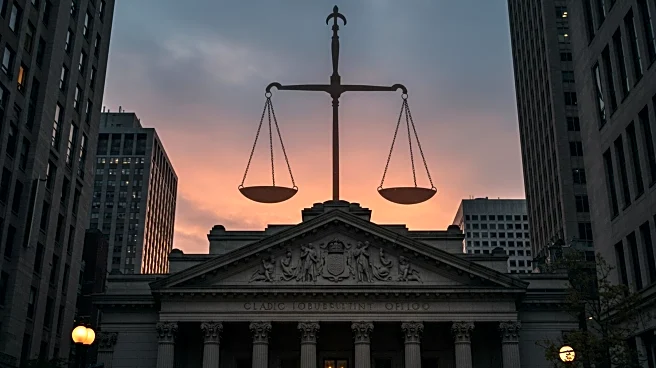What is the story about?
What's Happening?
A federal judge has extended an injunction preventing the Trump administration from defunding cities that do not cooperate with federal immigration enforcement. This decision follows a previous order in April that blocked the administration's efforts to withhold federal funds from so-called 'sanctuary cities.' The injunction now includes additional cities such as Los Angeles, Chicago, and Boston. The Trump administration's policy aimed to penalize cities that refused to assist with immigration enforcement, but the court ruled that such actions are likely unconstitutional. The case is part of a broader legal battle over the administration's immigration policies.
Why It's Important?
The ruling is a significant setback for the Trump administration's immigration agenda, which has prioritized cracking down on sanctuary cities. By blocking the defunding efforts, the court has upheld the autonomy of local governments to set their own policies regarding cooperation with federal immigration authorities. This decision protects critical funding for cities, which could have faced severe financial consequences had the administration's policy been implemented. The ruling also reinforces the legal principle that the federal government cannot coerce local governments into enforcing federal immigration laws.
What's Next?
The Trump administration is likely to appeal the decision, continuing the legal battle over sanctuary city policies. Cities involved in the lawsuit may need to prepare for further legal challenges and potential changes in federal policy. The outcome of this case could influence future federal-local relations and set a precedent for how immigration enforcement is handled across the country. Additionally, the ruling may embolden other cities to adopt sanctuary policies without fear of losing federal funding.
Beyond the Headlines
The case highlights the ongoing tension between federal and local governments over immigration policy. It raises questions about the balance of power and the role of local autonomy in shaping immigration enforcement. The broader implications include potential shifts in public opinion and political discourse surrounding immigration and the rights of local governments. This legal battle may also impact future legislative efforts to address immigration reform at the national level.

















